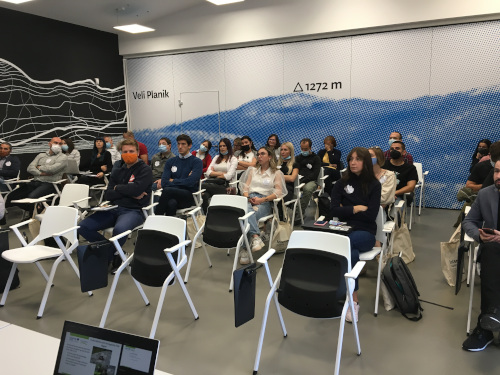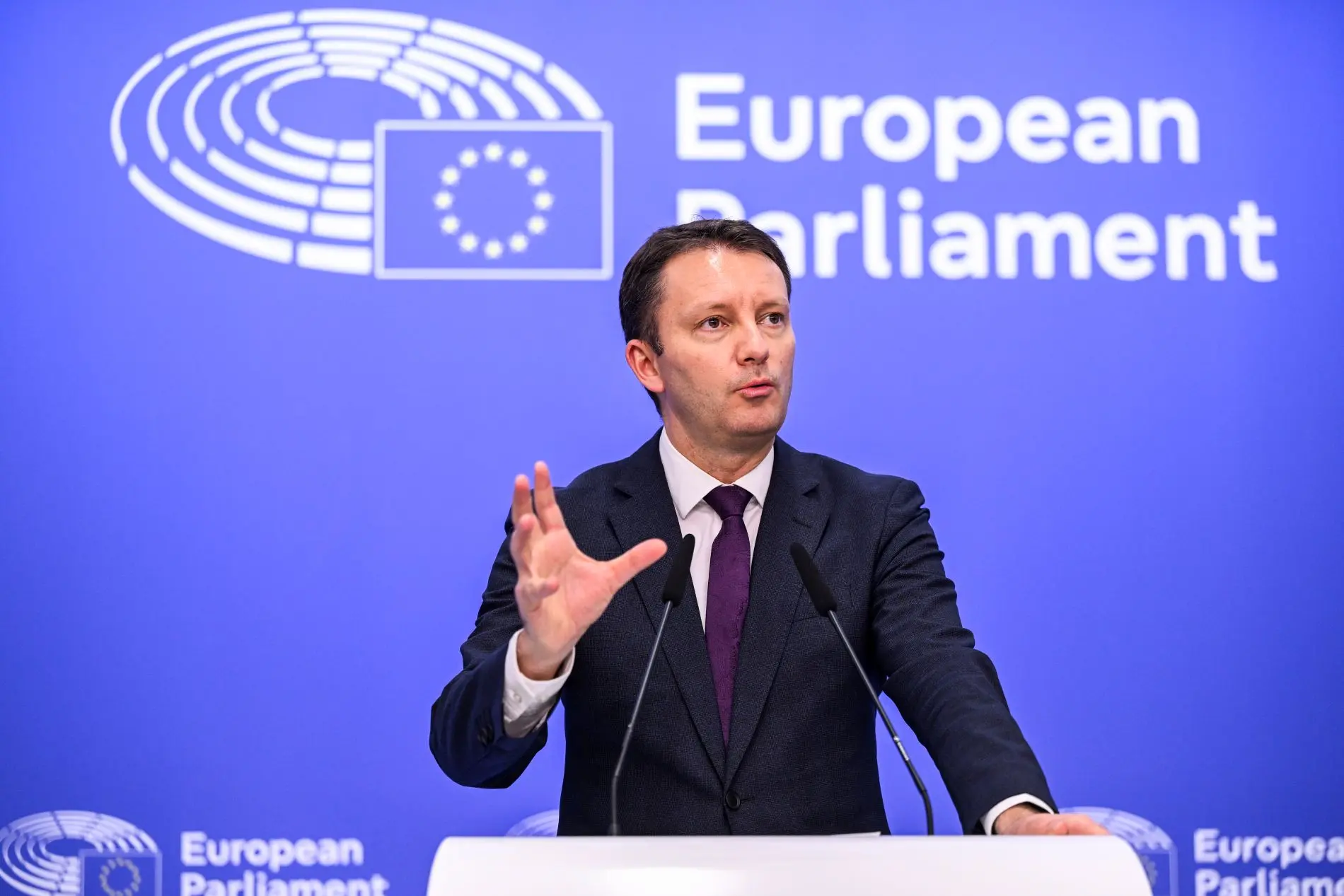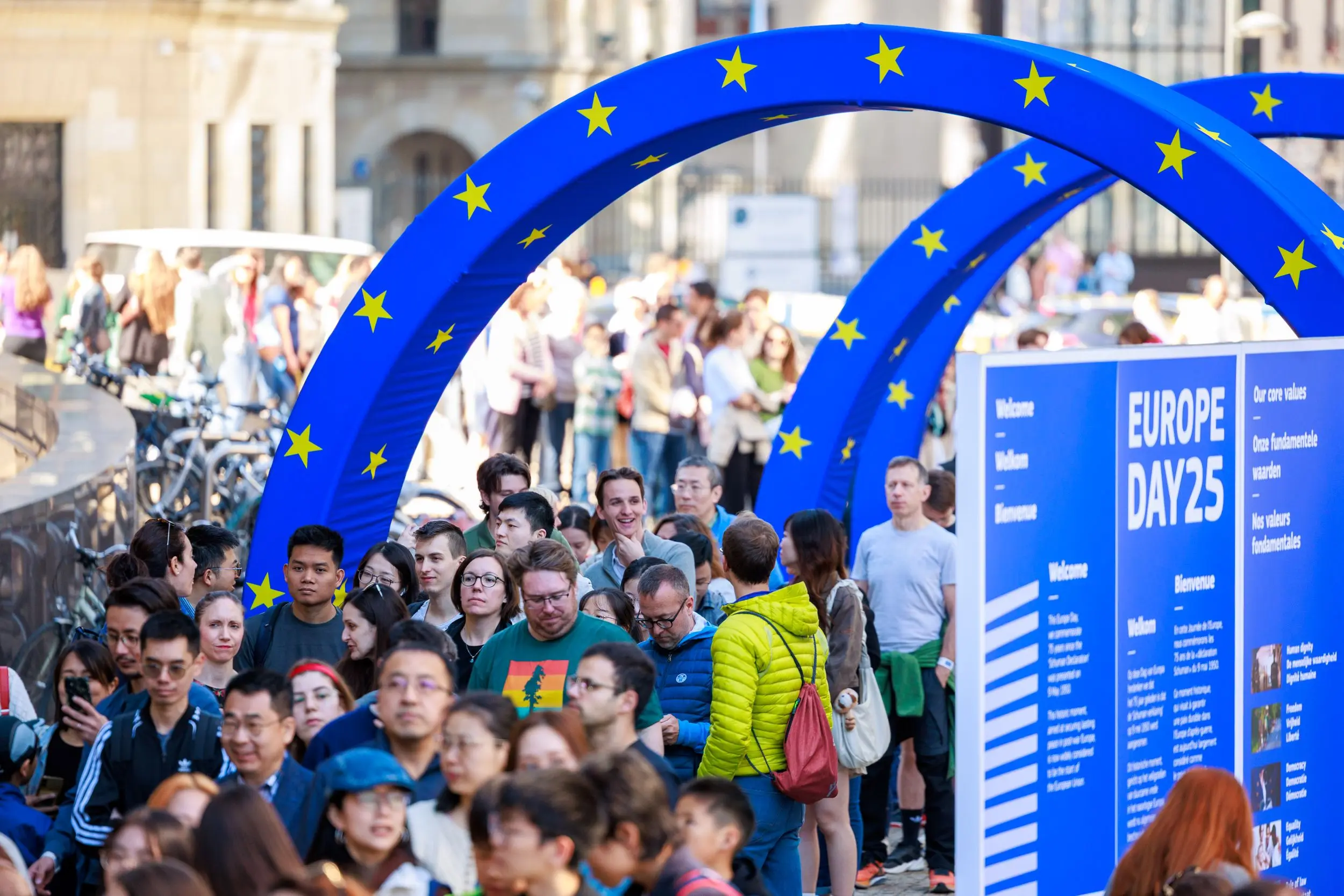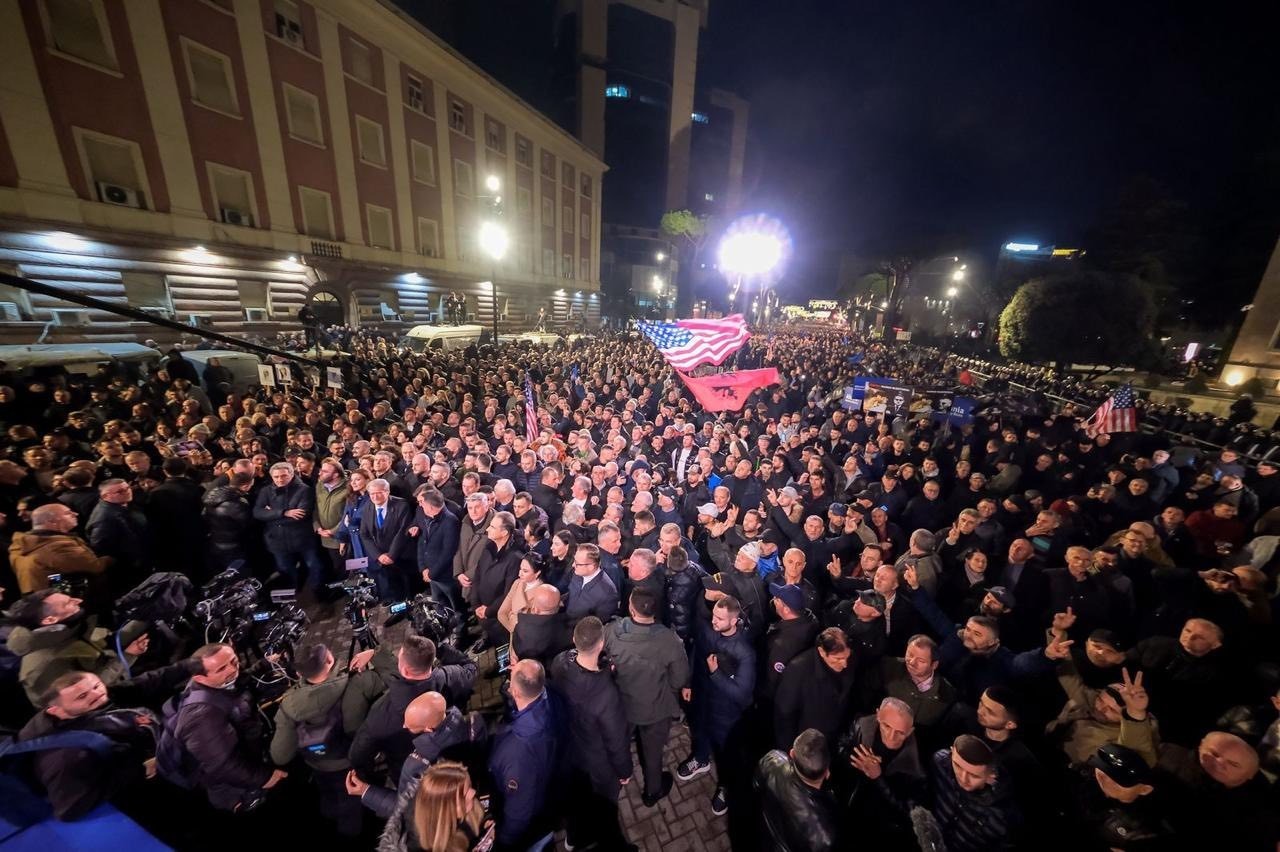Green networks in the Balkans
Protection of birdlife, ecological corridors that connect the Dinaric area to the Alps, sharing of good practices: the ecological association BIOM talks about its many years of experience and the creation of green networks in the region
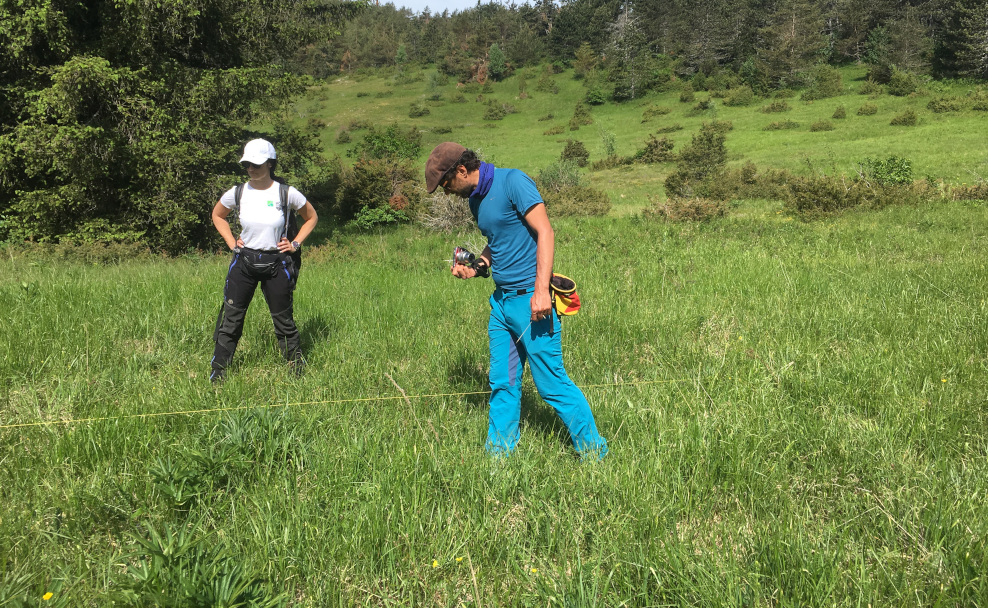
Reti-verdi-nei-Balcani
BIOM activists in action - © BIOM
BIOM is a Croatian association committed to the protection and conservation of nature, partner of BirdLife international since 2018. At the request of the European Commission, in Croatia’s pre-accession period, BIOM collaborated with other national NGOs to prepare a list of potential protected areas to be included in the Natura 2000 ecological network. In addition to the national level, BIOM also works at the regional level: it recently joined the NGO forum for the implementation of the Green Agenda for the Western Balkans. It is also part of the BioNet network which brings together civil society organisations from the Western Balkans engaged in the protection and protection of biodiversity. We interviewed director Zeljka Rajkovic and activist Marina Grgic.
Croatia was the last country to join the EU, in 2013 – can it be seen as a model by candidate countries, in particular to see what civil society organisations can do in the context of EU integration?
NGOs have never really been taken into consideration by the government, but have joined in an initiative called Zeleni Forum (Green Forum) thanks to which they have followed various aspects related to EU membership.
In the pre-accession period, at the request of the European Commission, BIOM collaborated with other national NGOs to prepare a "shadow list" of potential protected areas to be included in the Natura 2000 ecological network.
As regards the transposition of the legislation, the NGOs have promoted various specific projects but – I repeat – were never really taken into consideration by the government.
Looking at the issue of environmental protection, do you believe that the transnational nature of environmental challenges favours relations that go beyond national borders between the countries of the region?
As BIOM, we adhere to various initiatives for the Western Balkans or South-Eastern Europe. In particular, we participate in the drafting of the strategic documents of Bionet, a network focused on nature conservation. We also recently joined the NGO Forum for the Green Agenda for the Western Balkans.
Another relevant aspect is the joint implementation of projects, often financed in the context of Interreg, therefore of European projects on a cross-border scale. As far as we are concerned, we were involved in this type of activity for the first time with the Dinalpconnect project.
What kind of exchanges take place between the NGOs in the region and with other European NGOs?
In recent years we have collaborated, for example, with the German foundation EURONatur: they work a lot in the Balkans and like us they are particularly interested in the protection of birds. We have promoted exchange visits with them, to share knowledge and experiences.
In addition, we also organise workshops: for example, two years ago, we managed to organise one on the legal aspects of EU environmental protection. We organised it mainly for ourselves, as an EU member state, but we also invited regional NGOs to discuss it together. And this, I would say, happens quite frequently: we find that some NGOs have experience in a certain field and we visit each other.
Are there sometimes difficulties in this type of work with partners from other countries?
One of the most important things is the eligibility of different programmes when it comes to non-EU countries. Then sometimes it is not easy in our cross-border work to find a counterpart across the border. Finally, with regard to regional collaboration, in some countries the government has a strong role and equally strong pressures can be encountered at the political level.
You mentioned the Dinalpconnect project. What is it about?
First of all, the aim is to strengthen transnational and national cooperation in order to improve ecological connectivity on the Dinaric mountains and connect them with the Alps allowing the long-term nature conservation of these two areas.
Then we are developing action plans to this end in some pilot regions and finally we are developing a network of interested states across borders. There are currently eleven partners from Italy, Slovenia, Bosnia and Herzegovina, Montenegro, Albania, and Greece.
Speaking more about European biodiversity legislation, how will this project contribute to the adoption of new directives?
I don’t know if what is produced at the regional level will feed some recommendations at the EU level, even if it should. We try, also through the organisation of an international conference on ecological connectivity in which the partners will present the strategy we are working on. There should be political leaders in the European Union among the conference guests, and we hope that it will be useful.
Does the implementation of this type of project create working communities?
We work together very closely and all partners share knowledge and skills with each other. We also want to produce a list of stakeholders working in all four pilot regions and link them together.
In my opinion, this transnational approach certainly makes sense, and unfortunately it is by no means to be taken for granted. I think it is also important to involve the candidate countries for EU accession in these dynamics. For example, as Croatia we are part of the BirdLife partnership and we have proposed to the EU institutions to add EU candidate countries to our political taskforces, so that they can actually learn and see how things work. I think that the fact that Croatia is an EU member and shares, at least partly, a past and many relations with the states of the region, can help the candidate countries better understand the dynamics of the EU.
This content is published in the context of the “Work4Future” project co-financed by the European Union (EU). The EU is in no way responsible for the information or views expressed within the framework of the project. The responsibility for the contents lies solely with OBC Transeuropa. Go to the “Work4Future“
Tag: Work for Future
Green networks in the Balkans
Protection of birdlife, ecological corridors that connect the Dinaric area to the Alps, sharing of good practices: the ecological association BIOM talks about its many years of experience and the creation of green networks in the region

Reti-verdi-nei-Balcani
BIOM activists in action - © BIOM
BIOM is a Croatian association committed to the protection and conservation of nature, partner of BirdLife international since 2018. At the request of the European Commission, in Croatia’s pre-accession period, BIOM collaborated with other national NGOs to prepare a list of potential protected areas to be included in the Natura 2000 ecological network. In addition to the national level, BIOM also works at the regional level: it recently joined the NGO forum for the implementation of the Green Agenda for the Western Balkans. It is also part of the BioNet network which brings together civil society organisations from the Western Balkans engaged in the protection and protection of biodiversity. We interviewed director Zeljka Rajkovic and activist Marina Grgic.
Croatia was the last country to join the EU, in 2013 – can it be seen as a model by candidate countries, in particular to see what civil society organisations can do in the context of EU integration?
NGOs have never really been taken into consideration by the government, but have joined in an initiative called Zeleni Forum (Green Forum) thanks to which they have followed various aspects related to EU membership.
In the pre-accession period, at the request of the European Commission, BIOM collaborated with other national NGOs to prepare a "shadow list" of potential protected areas to be included in the Natura 2000 ecological network.
As regards the transposition of the legislation, the NGOs have promoted various specific projects but – I repeat – were never really taken into consideration by the government.
Looking at the issue of environmental protection, do you believe that the transnational nature of environmental challenges favours relations that go beyond national borders between the countries of the region?
As BIOM, we adhere to various initiatives for the Western Balkans or South-Eastern Europe. In particular, we participate in the drafting of the strategic documents of Bionet, a network focused on nature conservation. We also recently joined the NGO Forum for the Green Agenda for the Western Balkans.
Another relevant aspect is the joint implementation of projects, often financed in the context of Interreg, therefore of European projects on a cross-border scale. As far as we are concerned, we were involved in this type of activity for the first time with the Dinalpconnect project.
What kind of exchanges take place between the NGOs in the region and with other European NGOs?
In recent years we have collaborated, for example, with the German foundation EURONatur: they work a lot in the Balkans and like us they are particularly interested in the protection of birds. We have promoted exchange visits with them, to share knowledge and experiences.
In addition, we also organise workshops: for example, two years ago, we managed to organise one on the legal aspects of EU environmental protection. We organised it mainly for ourselves, as an EU member state, but we also invited regional NGOs to discuss it together. And this, I would say, happens quite frequently: we find that some NGOs have experience in a certain field and we visit each other.
Are there sometimes difficulties in this type of work with partners from other countries?
One of the most important things is the eligibility of different programmes when it comes to non-EU countries. Then sometimes it is not easy in our cross-border work to find a counterpart across the border. Finally, with regard to regional collaboration, in some countries the government has a strong role and equally strong pressures can be encountered at the political level.
You mentioned the Dinalpconnect project. What is it about?
First of all, the aim is to strengthen transnational and national cooperation in order to improve ecological connectivity on the Dinaric mountains and connect them with the Alps allowing the long-term nature conservation of these two areas.
Then we are developing action plans to this end in some pilot regions and finally we are developing a network of interested states across borders. There are currently eleven partners from Italy, Slovenia, Bosnia and Herzegovina, Montenegro, Albania, and Greece.
Speaking more about European biodiversity legislation, how will this project contribute to the adoption of new directives?
I don’t know if what is produced at the regional level will feed some recommendations at the EU level, even if it should. We try, also through the organisation of an international conference on ecological connectivity in which the partners will present the strategy we are working on. There should be political leaders in the European Union among the conference guests, and we hope that it will be useful.
Does the implementation of this type of project create working communities?
We work together very closely and all partners share knowledge and skills with each other. We also want to produce a list of stakeholders working in all four pilot regions and link them together.
In my opinion, this transnational approach certainly makes sense, and unfortunately it is by no means to be taken for granted. I think it is also important to involve the candidate countries for EU accession in these dynamics. For example, as Croatia we are part of the BirdLife partnership and we have proposed to the EU institutions to add EU candidate countries to our political taskforces, so that they can actually learn and see how things work. I think that the fact that Croatia is an EU member and shares, at least partly, a past and many relations with the states of the region, can help the candidate countries better understand the dynamics of the EU.
This content is published in the context of the “Work4Future” project co-financed by the European Union (EU). The EU is in no way responsible for the information or views expressed within the framework of the project. The responsibility for the contents lies solely with OBC Transeuropa. Go to the “Work4Future“
Tag: Work for Future

